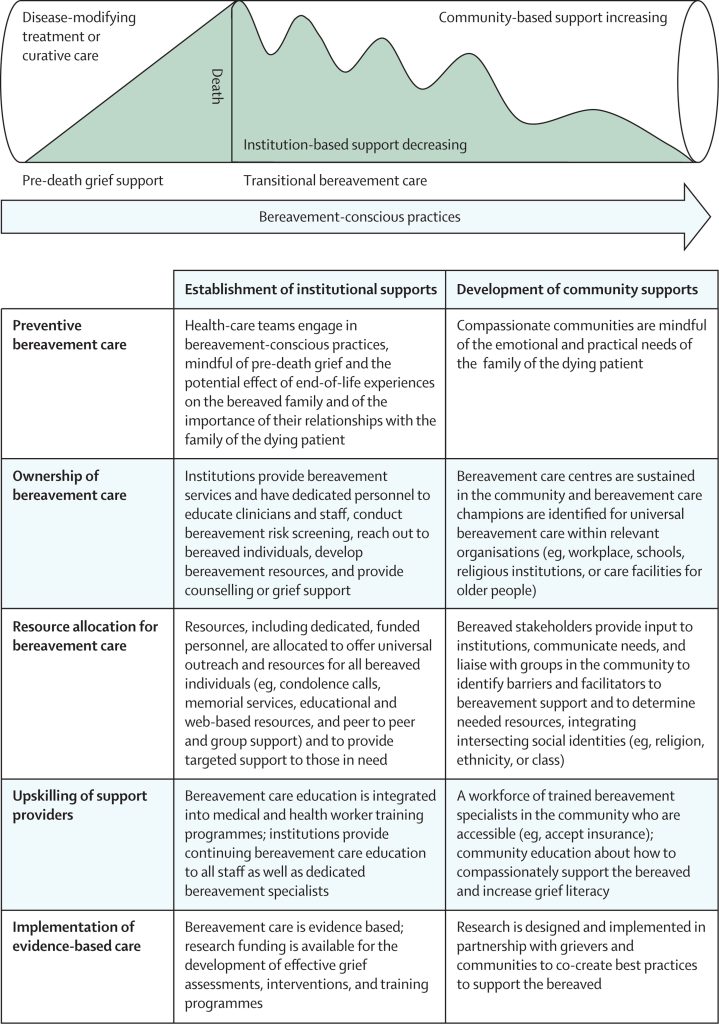
Transforming Bereavement Care
Grief is a universal experience, touching every one of us at some point in our lives. Yet, despite its inevitability, our systems of care often fall short when it comes to supporting those who are grieving. A recent study sheds light on this critical gap and proposes a new model for bereavement care that could make a world of difference for countless families.
The Hidden Toll of Bereavement
The aftermath of losing a loved one can be devastating. Beyond the emotional pain, bereavement can lead to a host of other serious issues. Prolonged grief disorder, anxiety, depression, and even physical health problems like heart disease and cancer are more common among those who have experienced significant loss. Unfortunately, the support systems to help people through this difficult time are often lacking.
Researchers highlight that while palliative care—which focuses on providing relief from the symptoms and stress of a serious illness—includes some elements of bereavement support, it’s frequently under-resourced. This lack of support can leave grieving individuals feeling abandoned just when they need help the most.
A New Approach to Grief Support
The study proposes a transitional model of bereavement care. This model aims to bridge the gap between the support provided by healthcare institutions and the ongoing needs of grieving individuals once they return to their communities. The idea is to ensure that bereavement care doesn’t end with a loved one’s death but continues in a structured way to help families cope.
Here’s how it works: Initially, healthcare providers offer intensive support, including grief education and psychosocial care. As time goes on, the model transitions this support to community-based services, ensuring that families don’t feel left alone. Community support might include peer support groups, counseling, and the nurturing of compassionate communities.

Why This Matters
This model is significant because it has the potential to make bereavement care a public health priority. By incorporating grief support into the healthcare system and extending it into the community, we can address the comprehensive needs of those who are grieving. This approach not only benefits individuals but also helps reduce the overall public health burden associated with grief-related illnesses.
For public health practitioners and researchers, the model presents a compelling case for integrating bereavement care into health strategies. It calls for a shift in perspective, viewing bereavement not just as an individual or family issue but as a significant public health concern that warrants attention and resources.
Making Compassionate Communities
One key element of the proposed model is the development of compassionate communities. These are communities where people are educated about grief and equipped to provide support to those who are mourning. This concept emphasizes the role of social connections in the healing process and encourages a cultural shift towards more empathetic and supportive environments.
Overcoming Challenges
Implementing this model won’t be without challenges. Healthcare systems need to invest in training and resources to support bereavement care. Communities will need to be educated and mobilized to offer sustained support. Despite these hurdles, the potential benefits make it a worthy endeavor.
By prioritizing bereavement care, we can help alleviate the hidden toll of grief. Ensuring that individuals and families receive the support they need can lead to better mental and physical health outcomes and create stronger, more compassionate communities.
Join the Conversation
- Have you or someone you know experienced a lack of support after the loss of a loved one? How did it impact the grieving process?
- What kind of community support would have made a difference in your or someone else’s bereavement journey?
Feel free to share your thoughts and experiences in the comments below or on social media. Your insights can help us understand the importance of comprehensive bereavement care.
Conclusion
Grief is a profound and challenging journey, but it doesn’t have to be one that people face alone. By adopting a transitional model of bereavement care, we can ensure that those who are grieving receive the support they need, both from healthcare providers and their communities. This shift not only supports individuals and families but also strengthens our collective resilience and compassion.
Be Part of the Change – Get Weekly Updates!
Stay informed and connected. Subscribe for free and share this blog to make a difference in public health with others.



